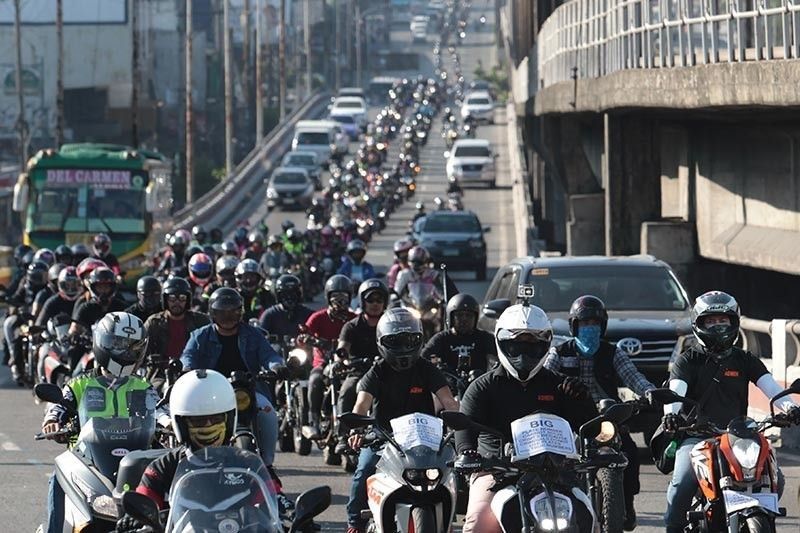Road users tax hike: House to spare motorcycles

MANILA, Philippines — The House of Representatives may spare millions of owners of motorcycles from the planned increase in the so-called road user tax, officially known as motor vehicle user’s charge (MVUC).
“I will propose that we exempt motorcycle owners. There are seven million of them,” Albay Rep. Joey Salceda, who chairs the ways and means committee, said yesterday.
If he would have his way, he said he would like the tax increase to be imposed on owners of cars and other four-wheel vehicles who, he added, would have more money to pay for it.
He said there are an estimated four million owners of cars, sport utility vehicles, pick-up trucks, vans, and other vehicles.
Salceda also confirmed that his committee, which is the panel that scrutinizes tax measures, has received the proposed law drafted by the Department of Finance (DOF) increasing the road user tax.
Based on the DOF rates, the MVUC motor vehicle owners pay to the Land Transportation Office (LTO) every year when they renew their registration would go up by as much as 300 percent.
The DOF-proposed rates are P1.40 for next year, P1.95 for 2021 and P2.50 for 2022, computed on the basis of the vehicle’s gross weight, plus its maximum cargo and/or passenger load as determined by the LTO.
In the specific example of a 2014 Toyota Hilux 3.0 utility vehicle, its owner paid P2,040 in road user tax last year, including the registration fee, plus P50 for stickers, P10 as contribution to the LTO “legal research fund” and P169.06 as computer fee – presumably paid to the agency’s automation service provider.
As reflected in its certificate of registration, the Hilux has a gross weight of 2,755 kilos or almost 2.8 tons, and a “net capacity” of 1,378 kilos or 1.4 tons. It is not clear if this net capacity is the cargo and/or passenger weight load the DOF referred to in its proposed law.
Based alone on the Hilux’s gross weight of 2,755 kilos and using the DOF-proposed rates, the owner would pay a road tax of P3,875 next year, P5,372.25 in 2021 and P6,887.50 in 2022, excluding registration and miscellaneous fees and the additional levy for the vehicle’s load-bearing capacity.
The increase would be bigger for older cars, since the DOF proposal would impose the same rates on vehicles, whether new or old.
Under the present law, older vehicles are levied a lower MVUC than newer ones.
The law also classifies cars as light, medium, heavy, and utility vehicles, for which there are varying registration and MVUC fees depending on the classification and age.
Aside from the MVUC adjustment, the House would consider increasing the excise tax on luxury vehicles costing more than P5 million.
The higher luxury car levy would cover mostly imported vehicles, since the most expensive “local” vehicle, Toyota’s Land Cruiser, sells for less than P5 million.
The Land Cruiser, the favorite sport utility vehicle of lawmakers, has two variants – one with “full option” costing P4.8 million, and the “standard” unit with a price tag of P4.4 million.
The Cruiser used to cost more than P5 million but its price went down because Congress, under the controversial Tax Reform for Acceleration and Inclusion (TRAIN) that took effect in January last year, reduced the excise tax on luxury vehicles.
In contrast, lawmakers increased levies on low and medium-priced cars, arguing there would be more tax collections on these vehicles, since it is employees and other low and middle-income earners who buy them.
Upon the insistence of House leaders, Congress removed the excise tax on pick-up trucks because they are utility vehicles.
Despite the removal of the tax, prices of pick-ups like the Hilux remain high.
- Latest
- Trending

































